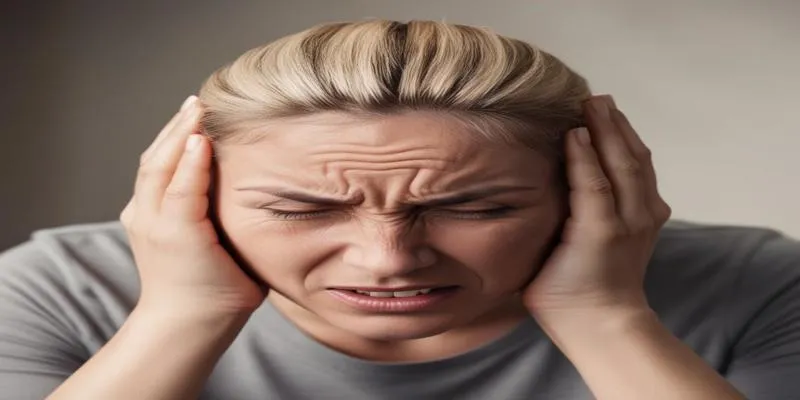Does Creatine Cause Headaches?
As you navigate your fitness journey, you may have encountered creatine as a popular supplement. Renowned for its ability to enhance muscle growth and athletic performance, some users have concerns about its side effects. A common question is whether creatine causes headaches. In this article, we will explore the relationship between creatine supplementation and headaches using scientific evidence and expert opinions.
What is Creatine and How Does it Work?
 Creatine is a
naturally occurring compound found in muscle cells, playing a vital role in
energy production during high-intensity, short-duration exercises. Known for
enhancing athletic performance and muscle growth, creatine has become a
popular choice among fitness enthusiasts.
Creatine is a
naturally occurring compound found in muscle cells, playing a vital role in
energy production during high-intensity, short-duration exercises. Known for
enhancing athletic performance and muscle growth, creatine has become a
popular choice among fitness enthusiasts.
The Science Behind Creatine
Creatine serves as a quick energy source for muscle contraction. Upon ingestion, it combines with phosphate in the body to form creatine phosphate, which aids in recycling adenosine triphosphate (ATP). ATP is the energy currency of the cell, replenishing energy rapidly during intensive physical activities.
Forms and Supplementation
Creatine is available in various forms, with creatine monohydrate being the most researched and commonly used. Other forms include creatine ethyl ester, hydrochloride, and buffered creatine. Typically, users start with a loading phase of 20 grams daily for 5-7 days, followed by a maintenance dose of 3-5 grams daily.
Benefits and Effects
Research has shown that creatine supplementation can lead to increased muscle mass, strength gains, and enhanced performance in high-intensity, short- duration exercises. Some studies suggest slight cognitive benefits, though this area requires further investigation. It’s important to note that while creatine is generally considered safe, individual reactions may vary. Consulting with a healthcare professional before starting supplementation is recommended, particularly for those with chronic health concerns.
Linking Creatine to Headaches
How it Possibly Relates
While creatine is celebrated for its performance-enhancing properties, some users report headaches after supplementation. Although there is limited scientific evidence directly linking creatine to headaches, several theories exist. One possibility is that creatine draws water into muscle cells, potentially increasing the risk of dehydration if fluid intake isn’t sufficient. Dehydration is a common cause of headaches, which may explain user discomfort.
Factors That May Affect Headache Incidence
Several factors may influence the likelihood of headaches during creatine supplementation:
- Dosage: High creatine doses, especially during the loading phase, can increase the risk of side effects.
- Hydration status: Inadequate water intake may elevate the risk of dehydration-related headaches.
- Individual sensitivity: Some individuals may be more sensitive to creatine.
- Pre-existing medical conditions: Those with a history of migraines or tension headaches may be more susceptible.
Minimizing the Risk of Headache
To reduce the risk of headaches from creatine, consider these tips: Start with a smaller dose and gradually increase it. Ensure you stay well-hydrated, particularly during workouts. You might skip the loading phase and maintain a consistent, lower daily dosage. If headaches persist, discontinue creatine use and consult a healthcare professional.
Factors That Affect Creatine-Induced Headache
 While creatine is
generally safe for most, some individuals may experience headaches with this
supplement. Understanding the factors that contribute to creatine-induced
headaches can help minimize risks and manage discomfort.
While creatine is
generally safe for most, some individuals may experience headaches with this
supplement. Understanding the factors that contribute to creatine-induced
headaches can help minimize risks and manage discomfort.
Dosage and Loading Phase
The amount of creatine consumed is directly related to potential side effects. During the loading phase, a high dose is used to saturate muscles quickly, potentially causing headaches due to the sudden increase in creatine levels.
- Standard loading phase: 20-25 grams daily for 5-7 days
- Maintenance phase: 3-5 grams daily
Consider taking a smaller dose or skipping the loading phase to reduce headache risks.
Hydration Level
Creatine causes muscles to retain water; inadequate intake may lead to dehydration, a common headache cause. To counteract this, increase water intake when using creatine. Monitor your urine color—it should be pale yellow. Consider electrolyte supplementation if needed.
Individual Sensitivity
Individual reactions to creatine vary based on genetics, health history, and overall health. If you frequently suffer from headaches or migraines, you may be more susceptible to creatine-induced headaches. Start with a low dose and monitor your body’s response.
Creatine Quality and Purity
Not all creatine supplements are of equal quality. Lower-quality products may contain impurities or additives that could trigger headaches. Opt for high- quality creatine monohydrate from reputable brands tested by third parties.
How to Avoid and Deal with Creatine Headaches
Hydrate
Proper hydration is crucial when taking creatine. Since creatine causes muscles to retain more water, insufficient hydration can lead to dehydration. Aim to drink 8-10 glasses of water daily, increasing this amount when working out or during hot weather. Keep a reusable water bottle handy to remind you to drink frequently.
Dose Adjustment
If headaches persist, reduce your creatine intake. Start with low dosages, around 3 to 5 grams daily, and adjust based on your body’s response. Listen to your body and make changes as needed.
Time Your Intake Wisely
Timing can significantly affect how creatine affects you. Some users find that taking creatine post-workout or with food reduces side effects like headaches. Experiment with timing to see what works best for you. Avoid taking creatine too close to bedtime, as it may disrupt sleep patterns.
Watch Your Overall Diet
Balance your diet when using creatine. Ensure adequate protein intake and consume complex carbohydrates to maintain strong energy levels. Some find that taking creatine with simple carbohydrates, like fruit juice, helps prevent headaches and aids absorption.
Watch Other Supplements
If you take multiple supplements, be aware of potential interactions. Some pre-workout formulas or caffeine-containing products might contribute to headaches when combined with creatine. Consider temporarily eliminating other supplements to isolate the cause of headaches.
Conclusion
While creatine is generally safe and effective for most users, it can cause headaches in some individuals. Staying hydrated, managing your dosage, and consulting with a healthcare professional can significantly reduce the risk of developing headaches from creatine.









